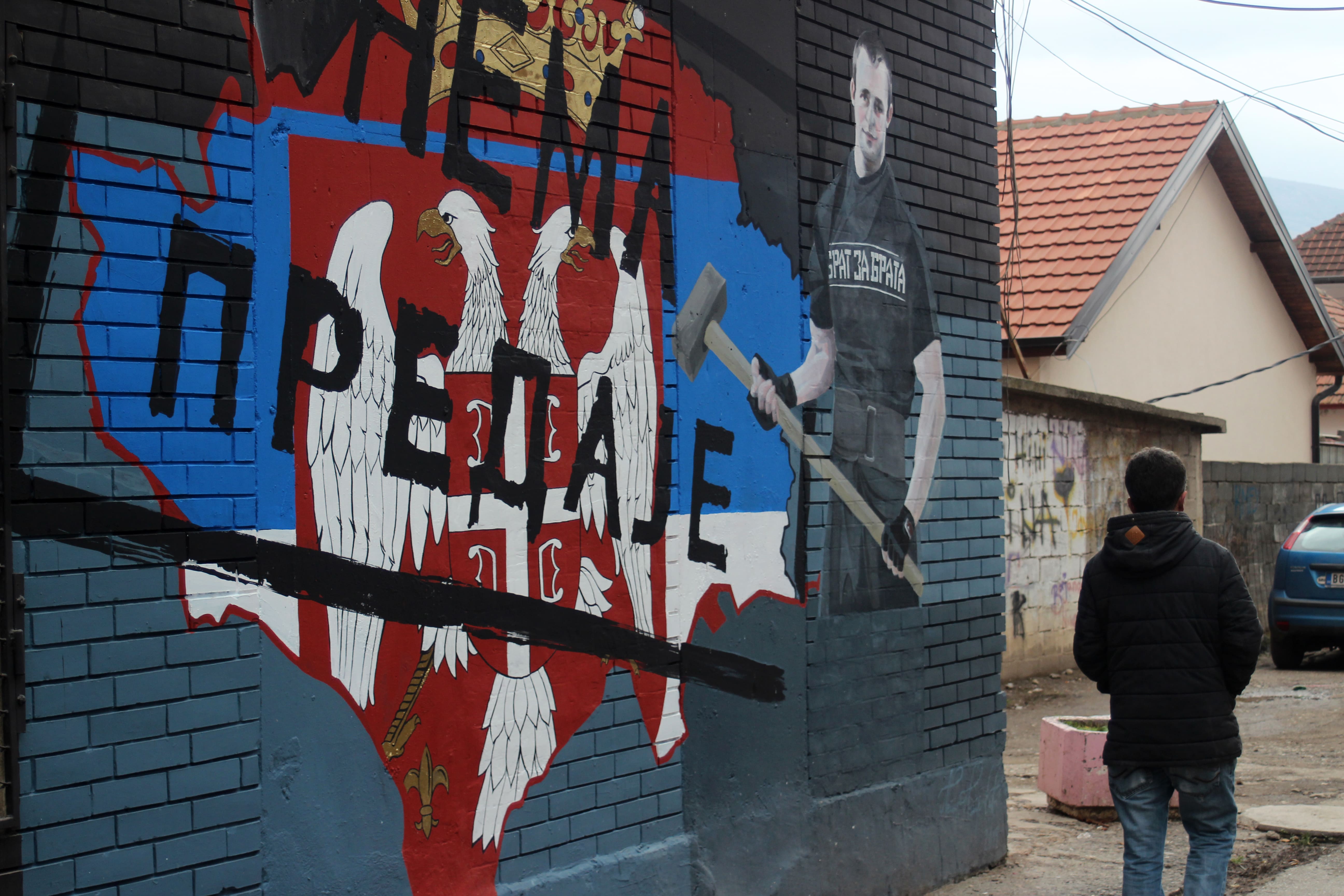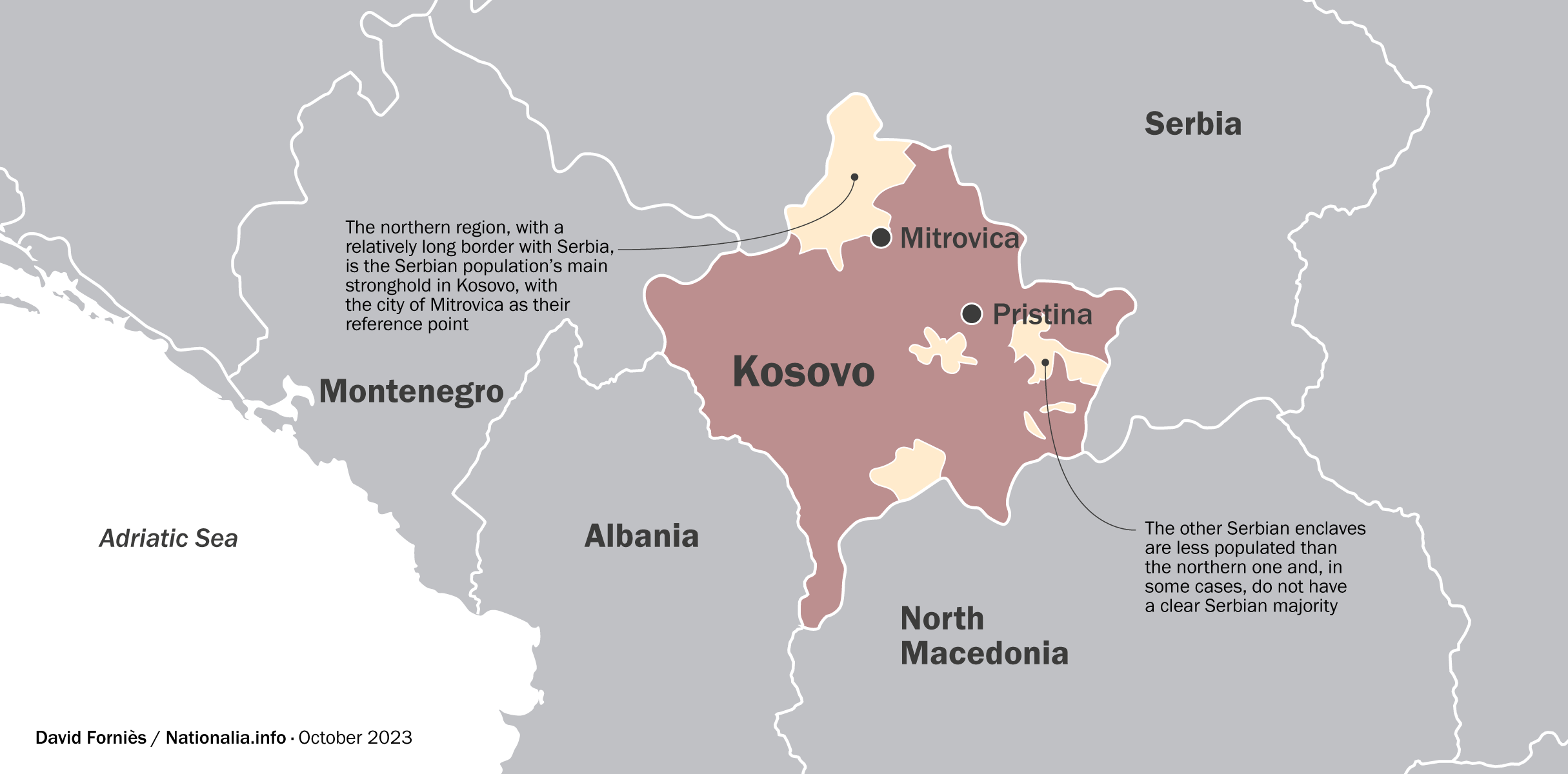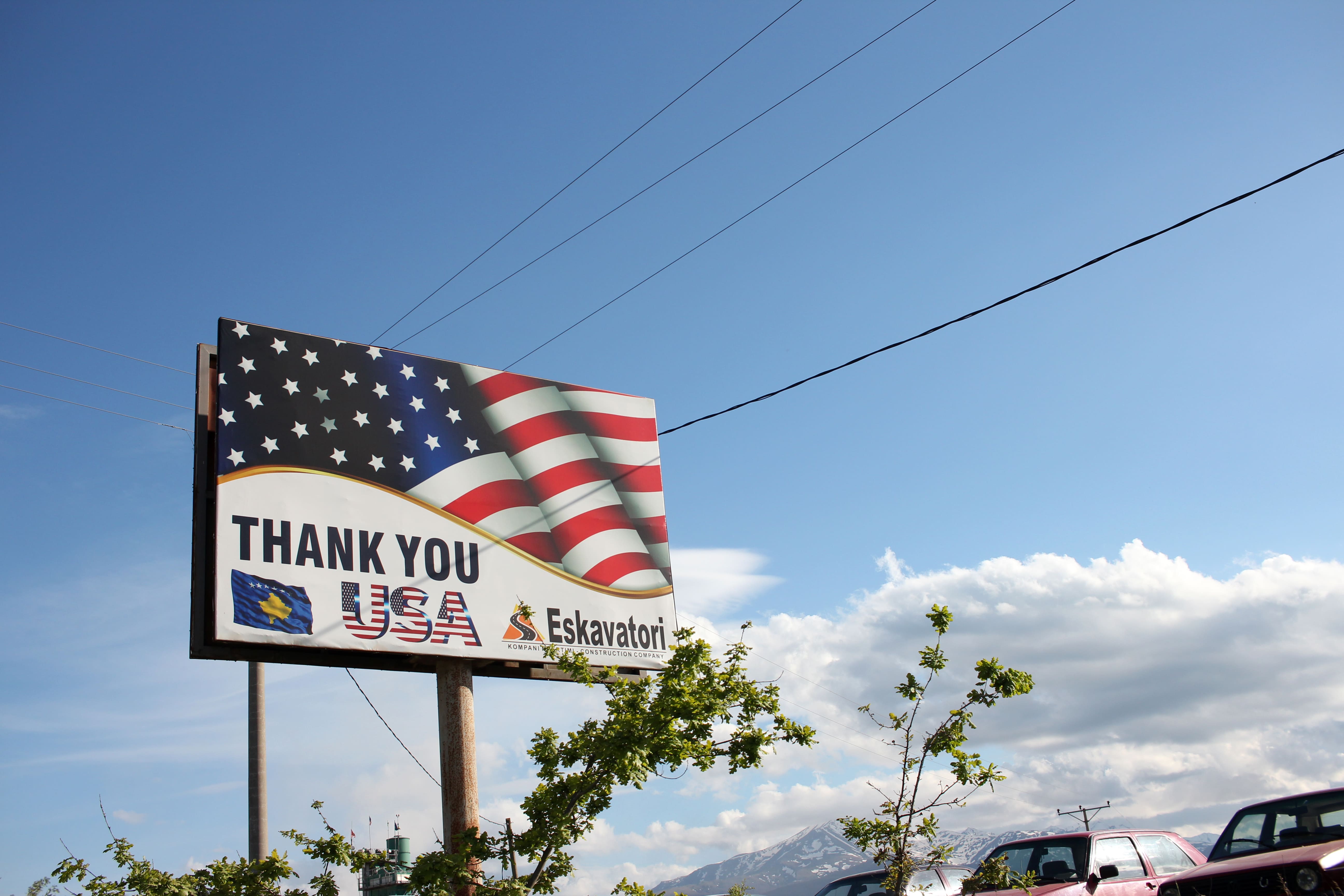News
Neither recognition nor security perception for Kosovo
Kosovo’s frozen conflict constantly shows its ambivalence: political crises emerge, then de-escalate, and then flare up again. This loop, which the Kosovo Albanian and Kosovo Serb communities know all too well, has seen events over the past year that have caused a media stir. In May, clashes between Kosovo Serbs and NATO peacekeepers left dozens wounded, something not seen for years. In September, a Kosovo policeman was killed in an ambush. These tensions will not lead to open warfare, but call into question the perception of security in the region —maybe the international community’s only success since it intervened in the country in 1999.
The latest crisis in Kosovo’s mostly Serb-majority north, de facto controlled by Belgrade, began when Albin Kurti, the Kosovo Albanian prime minister, made it compulsory to register Serbian vehicles with Kosovo number plates. The so-called number plate crisis came together with other measures to establish Albanian sovereignty in the region. Serbs opposed, rioted, and boycotted elections, and Albanian councillors with no legitimacy occupied town halls from which they even removed Serb symbols. After months of tension, the European Union (EU) mediated, and leaders agreed to de-escalate the conflict. This time, however, Brussels’ optimistic rhetoric has been insufficient, as skirmishes continue: a Kosovo policeman was recently killed in an ambush organised by paramilitaries led by mafia-style politician Milan Radoičić, who controls the region behind the scenes. Surveillance cameras caught Radoičić in the clash, leaving the man with no choice but to admit his involvement and resign as vice-president of the pro-Belgrade party Serbian List. In a statement, he claimed that he had acted without the support of his political party and that he would only answer to Serbian justice.
 "No surrender": a Serbian graffitti on a Mitrovica wall. / Photo: M. F. I.
"No surrender": a Serbian graffitti on a Mitrovica wall. / Photo: M. F. I.“The terrorists were instigated by Serbia’s hegemonic desires, and the important thing is that the Kosovo police acted in coordination with NATO. Peace must be maintained in Kosovo, even if Serbia does not want it,” says Edita Tahiri, who led Priština’s delegation to the dialogue process with Serbia between 2011 and 2017.
The Serb community represents around 7 per cent of the 2 million-strong Kosovo population. They live in the enclaves, surrounded by Albanians, and in the north of Kosovo, beyond the bridge over the Ibar River in Mitrovica, under Belgrade’s de facto control. While Kosovo Serbs themselves have different visions of how to resolve the conflict, most receive salaries, pensions, and parallel education and health services from Belgrade, which controls the local patronage network and the Serbian List party.

Negotiations
Although talks between Priština and Belgrade are currently frozen, another rapprochement is likely sooner or later, and once again on the negotiating table will be a reminder of the obligation to fulfil past agreements, including the implementation of the Association of Serb Municipalities (ASM), a semi-autonomous body whose powers remain unknown and which many see as a solution to the conflict.
The main objective of the negotiations is for Serbia to recognise Kosovo’s sovereignty. Once this condition is met, both countries will remove the biggest obstacle to EU membership. In turn, it will be required that five EU states —including Spain— still not recognising Kosovo change their minds. Besides maintaining the current status quo, and Belgrade continuing to veto Priština in the UN, Interpol, and other international organisations, there are two ways out: in exchange for Serbia’s recognition of Kosovo, Priština should implement the ASM or exchange northern Kosovo for the Preševo Valley in southeastern Serbia, mostly inhabited by Albanians.
“Territorial exchange is no longer an option; Angela Merkel did not accept it. If there were a border swap scenario, it would completely affect the Balkans. Moreover, it is the Serbian dream: it would revive the idea of Greater Serbia, which was Yugoslavia’s political project. So do you think that the Albanians and Croats would remain divided while the Serbs set up Greater Serbia?”. Edita Tahiri, who was also Kosovo’s foreign minister during the years of Serbian occupation between 1990 and 2000, defiantly points out. “Serbia must recognise Kosovo unconditionally; EU accession must be a sufficient incentive. The ASM, along the lines of the Ahtisaari Plan [the roadmap that shaped Kosovo’s constitution and led to Kosovo’s declaration of independence], without executive powers, is a good option. But Kurti does not want to implement it: he came to power opposing it, and he knows that, were he to accept it, he would lose in the next election,” she adds.
Although its powers are unknown, the ASM is the option the international community has chosen. The EU and the United States insist on it, and Serbia repeats that this was what had been
Balkan expert Miguel Roán agrees that the ASM could be the solution to the conflict. But he is pessimistic, and expects no progress in the short term. “Neither Kurti nor Vučić have tried to convince society to move forward. For Serbia, Kosovo recognition would imply a constitutional reform that, in addition to needing support from two-thirds of parliament, would have to be accompanied by a referendum, but the majority of society is against recognition. Therefore, something must be given to Belgrade that is sufficiently attractive for a leader to first assume an agreement with unavoidable political costs and then be able to convince society,” explains Roán. “In addition, there is another element to take into account: for Kosovo to be internationally recognised, China and Russia must drop their veto in the UN Security Council. In the current conflict context, Putin is not going to give in in exchange for nothing, and even less so now,” he adds.
Despite growing democratic shortcomings and pragmatic relations with Russia and China, the West is pleased with the role of Aleksandar Vučić, a stable leader who controls all the levers of power and is strong enough to push through any constitutional reform. Right now, he controls the tempo, because Serbia does not suffer from the status quo, and does not need to make a move until another phase of the talks. Kosovo, on the other hand, must stipulate what kind of decentralisation the ASM will have and pass any amendments in a polarised parliament. A regional challenge that also lacks the strong support of jaded international guarantors. “The problem goes beyond the leaders of Kosovo and Serbia: international actors must get involved, and the priority is not Kosovo recognition: there are other fronts on the table that are more relevant than guaranteeing the independence of a pro-Europe, pro-NATO state of 2 million inhabitants,” says Roán.
Non-conformist Kurti and the dispute with the US
For Serbia, Kosovo is the cradle of its religious identity: landmark Orthodox temples are found here, and it is here that the medieval Lazarević dynasty succumbed to the Ottoman Empire’s rise. Belgrade claims that, over the centuries, the Ottomans pushed for a demographic shift to benefit their mostly Muslim Albanian acolytes. For their part, the Albanians claim they are descendants of the Illyrians and have always been in Kosovo. That is why, they stress, they now make up 90 per cent of the population.
With essential help from NATO, the Kosovo Albanian people emerged victorious in the 1998-99 conflict. In 2008 they declared independence, which was deemed legal by the UN International Court of Justice in 2010. After years under the unsuccessful control of leaders of KLA’s heir parties, such as Hashim Thaçi or Ramush Haradinaj, and with the recognition process stalled and the international community besmirched by corruption, Kosovo Albanian society began to look to Albin Kurti and his Vetëvendosje party.
Faced with the exhaustion of democratic shortcomings and lack of opportunities, Kurti’s radical discourse, accompanied by subversive actions on the streets and in parliament, struck a chord, especially among young people. He promised an end to corruption, justice reform, and border control. Moreover, channeling popular sentiment with a markedly patriotic discourse, he opposed negotiating with Serbia, hence the slogan “Jo negotiata, Vetëvendosje” (‘No negotiation, self-determination’).
Once in power, Kurti moderated the rhetoric and acknowledged that relations with Serbia would be based on reciprocity of actions. However, past speeches and actions weighed too heavily, and the actors that had been Kurti’s target soon conspired against him, led not by Serbia but by the US: the Trump Administration, which sought to score a point before the US election by seeking a quick settlement in Kosovo, knowing that this would be impossible with Kurti, forced the LDK —then in coalition with Kurti— to push for a motion of censure. Kurti faced fresh elections: he won them, by an even larger margin, propping up a Kosovo Albanian government that, for the first time, confronted the US, Kosovo’s guarantor.
 Kosovo billboards show messages that thank US support. / Photo: M. F. I.
Kosovo billboards show messages that thank US support. / Photo: M. F. I.However, for Edita Tahiri, “Kurti does not have the ability to change Kosovo’s pro-American, pro-Western orientation.” “Moreover, his anti-American stance can be questioned: if he is not pro-American, to whom is he allied? Without the US, we could not have achieved independence. They are our strategic allies,” insists Tahiri. “Kosovo has the capabilities of a young state; on our own, we don’t have the capacity to defend our borders,” he stresses, pointing to NATO, which is the same as the US.
Kurti faces daunting obstacles in pursuing his agenda: a parliament in which the majority of parties could ally themselves only to overthrow him; an international community that is tripping him up for not willingly aligning itself with its interests; and a reality —lack of international recognition— that does not depend on him but on his great enemy, the Serbian state. However, to face these challenges and others, the maverick and fractious Kosovo prime minister can still count on his particular guarantor: the Kosovo Albanian society.
